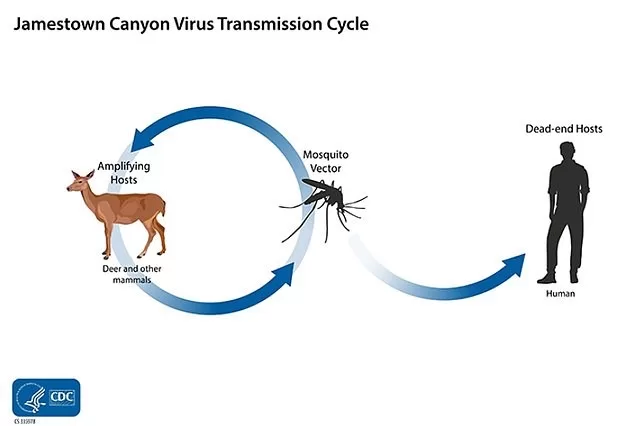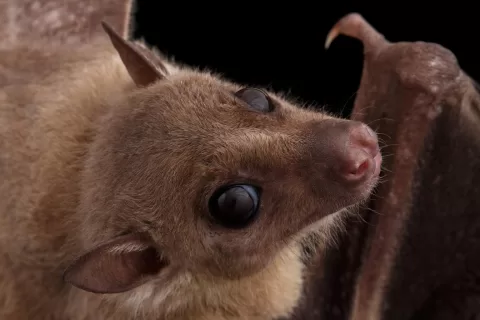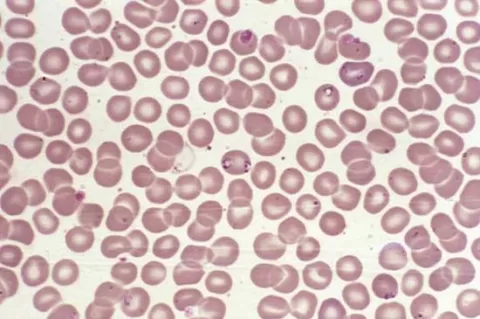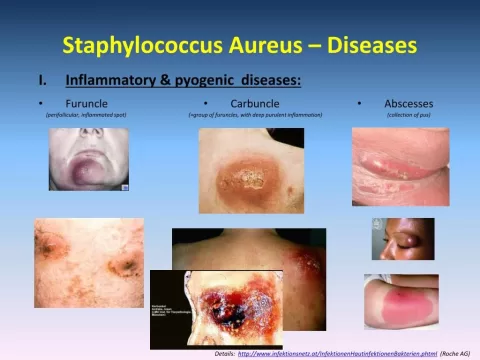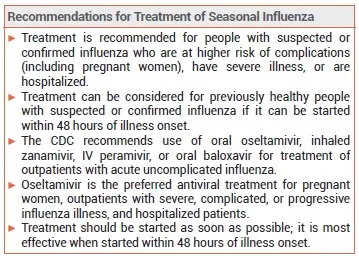Jamestown Canyon virus, a mosquito-borne illness, has officially made its mark in Vermont with the state’s first reported human case. This alarming development emphasizes the importance of awareness as residents learn more about how to prevent mosquito bites effectively. The Vermont Department of Health confirmed the case, highlighting potential symptoms of Jamestown Canyon such as fever, fatigue, and headaches that individuals might experience. Given that the elderly and those with weakened immune systems are at greater risk, vigilance is crucial. With mosquitoes confirmed to carry the virus in the state, now is the time for residents to educate themselves on protective measures that can help stave off this serious health threat.
The emergence of Jamestown Canyon virus in Vermont underscores the rising concern regarding mosquito-borne diseases across various regions. As health officials investigate the implications of this virus, it becomes essential for the public to understand effective ways to minimize exposure to mosquito bites. While many may not have heard of this illness prior, recognizing the symptoms of Jamestown Canyon can aid in early detection and prevention. The risk associated with these diseases is heightened for vulnerable populations, making awareness even more critical. Proper educational efforts on such illnesses can empower communities to protect themselves during mosquito season.
Understanding Jamestown Canyon Virus and Its Impact
The Jamestown Canyon virus is a mosquito-borne illness that has recently gained attention in Vermont, with the state confirming its first human case. This viral infection primarily affects mosquitoes but can be transmitted to humans through bites. Understanding the transmission dynamics and recognizing the symptoms associated with this virus is crucial for public health. Symptoms of Jamestown Canyon typically include mild to moderate fever, fatigue, headache, and in more severe cases, confusion and loss of coordination.
Identifying those at highest risk for severe illness is important, as individuals with weakened immune systems and the elderly face the greatest danger. Public health officials emphasize the importance of recognizing early symptoms of the Jamestown Canyon virus to ensure timely medical attention. With a limited number of reported cases, this virus underscores the necessity for ongoing awareness and understanding of mosquito-borne illnesses in Vermont.
Preventing Mosquito Bites during Virus Outbreaks
As the recent case of the Jamestown Canyon virus in Vermont highlights the dangers of mosquito bites, it is crucial for residents to implement effective prevention strategies. Mosquito-borne illnesses can occur even in cooler temperatures, so vigilance is essential throughout the year. To reduce exposure to mosquito bites, individuals are advised to wear long sleeves and pants, use insect repellent, and ensure that windows and doors are fitted with screens. Eliminating standing water around homes can also diminish mosquito breeding sites.
Health officials stress the importance of public awareness in combating the spread of mosquito-borne illnesses. While the risk remains relatively low for serious outcomes, such as severe cases of the Jamestown Canyon virus, taking proactive measures is key. Residents are encouraged to stay informed about local mosquito populations and any reported cases of illnesses, which can help them take necessary precautions in advance.
Recognizing Symptoms of Jamestown Canyon Virus Infection
To effectively manage the risks associated with the Jamestown Canyon virus, it is vital to be aware of its symptoms. Early detection and intervention can significantly improve outcomes for those affected. Symptoms typically resemble those of other viral infections, including fever, headache, and extreme fatigue. Severe cases may lead to neurological symptoms such as seizures and disorientation.
Recognizing these early signs can lead to better health outcomes, especially for the most vulnerable populations, including the elderly. Public health authorities recommend seeking medical assistance if any symptoms persist or worsen, particularly for those with underlying health conditions. Increased awareness and timely action can help mitigate the effects of this and other mosquito-borne illnesses, ensuring that residents stay healthy during mosquito season.
The Role of Health Authorities in Addressing Mosquito-Borne Illnesses
Health authorities play a critical role in addressing outbreaks of mosquito-borne illnesses such as the Jamestown Canyon virus. In Vermont, the Department of Health is proactive in monitoring mosquito populations through testing and public education campaigns. Their efforts include sharing knowledge about the virus and its transmission and encouraging preventive measures to protect at-risk communities.
Furthermore, the involvement of health officials helps in creating an informed public that understands the importance of personal responsibility in preventing mosquito bites. The communications provided by health authorities are aimed at educating residents about the ongoing risks and the necessary steps to minimize these threats, especially during peak mosquito activity seasons.
Current Trends in Mosquito Monitoring and Testing
The recent confirmation of the Jamestown Canyon virus case has prompted increased mosquito monitoring efforts in Vermont. For the first time, the state has conducted comprehensive testing in multiple regions to gauge the presence of the virus in mosquitoes. This proactive approach allows health officials to track infection rates in mosquito populations, which is crucial for assessing the potential risk to public health.
Continuous mosquito monitoring can also help guide public health messaging and response strategies. By identifying hotspots where infected mosquitoes are present, local authorities can deploy targeted campaigns to educate residents about the importance of prevention. Regular updates on mosquito testing and prevalence data will empower the community and support efforts to combat mosquito-borne illnesses effectively.
Understanding Public Health Messaging regarding Jamestown Canyon
Effective public health messaging is crucial in the context of the Jamestown Canyon virus. Vermont health officials are actively communicating the risks associated with mosquito-borne illnesses and are encouraging communities to remain vigilant. By providing clear guidance on how to prevent mosquito bites and what to look for in terms of symptoms, health officials aim to equip Vermonters with the knowledge necessary to protect themselves and their families.
In addition to raising awareness, consistent messaging from health authorities reinforces the importance of community engagement in mosquito control efforts. Residents are urged to participate in initiatives designed to reduce standing water and eliminate mosquito breeding grounds around their homes. Educated communities can significantly decrease the incidence of diseases like the Jamestown Canyon virus.
Future Directions in Research on Mosquito-Borne Illnesses
Research is vital in enhancing our understanding of mosquito-borne illnesses, including the Jamestown Canyon virus. As health authorities gather more data on the virus’s transmission and impact, ongoing studies will shed light on the complexities of mosquito ecology and its interaction with human health. Future research could lead to improved methodologies for monitoring mosquito populations and developing effective public health strategies.
In addition, advancements in genetic research may provide insights into how to curb mosquito populations and mitigate the spread of viruses. Investing in research will not only help predict potential outbreaks but will also enable authorities to create targeted interventions tailor-made to the unique ecological contexts of affected regions, ultimately reducing the risks associated with mosquito-borne illnesses.
Community Strategies for Combatting Mosquito Breeding
Communities can take substantial steps to combat mosquito breeding and reduce the risk of diseases like Jamestown Canyon virus. Public education campaigns that highlight the importance of eliminating standing water around homes can empower residents to take ownership of their environment. Community cleanup events to remove items such as tires and containers that collect water can be effective in minimizing mosquito habitats.
Additionally, residents are encouraged to collaborate with local health departments in monitoring mosquito populations and reporting potential breeding sites. Such community efforts contribute to a collective defense against mosquito-borne illnesses, fostering a healthy environment while enhancing overall public health initiatives.
The Importance of Early Intervention and Response
Early intervention is key to effectively managing cases of the Jamestown Canyon virus. Recognizing symptoms and seeking medical help promptly can minimize the severity of illness. Public health organizations urge residents to remain alert to any signs of mosquito-borne illness and to connect with healthcare professionals for guidance and treatment.
Moreover, understanding the importance of swift public health response in the case of confirmed human cases can help mitigate potential outbreaks. Local health authorities must be prepared to mobilize resources quickly to contain the spread and inform the public about preventive measures to minimize exposure.
Educating Vermonters about Mosquito Borne Illnesses
Education is a powerful tool in the fight against mosquito-borne illnesses, including the Jamestown Canyon virus. Efforts to educate Vermonters about the symptoms, risks, and prevention of these illnesses are crucial. Information sessions, community workshops, and online resources can empower individuals to take proactive measures in protecting themselves from mosquito bites.
Additionally, schools and community organizations can play a significant role in spreading awareness about mosquito-borne illnesses. Collaborating with public health experts allows these institutions to deliver vital information to families, ensuring that everyone understands the importance of preventive tactics, particularly during peak mosquito seasons.
Frequently Asked Questions
What is the Jamestown Canyon virus and how is it transmitted?
The Jamestown Canyon virus is a mosquito-borne illness transmitted primarily by infected mosquitoes. It is most commonly found in certain regions, including Vermont, where its first human case was recently reported.
What are the symptoms of Jamestown Canyon virus?
Symptoms of Jamestown Canyon virus typically include fever, fatigue, and headache. In more severe cases, individuals may experience confusion, loss of coordination, seizures, or a stiff neck.
Who is at higher risk for severe illness from the Jamestown Canyon virus?
Individuals with weakened immune systems and the elderly are at higher risk for symptomatic illness from the Jamestown Canyon virus, which can sometimes lead to severe health complications.
How can I prevent mosquito bites to reduce the risk of Jamestown Canyon virus?
To prevent mosquito bites and reduce the risk of the Jamestown Canyon virus, you should use insect repellent, wear long sleeves and pants, and eliminate standing water where mosquitoes breed.
Have there been any recent cases of Jamestown Canyon virus in Vermont?
Yes, Vermont reported its first human case of Jamestown Canyon virus earlier this week in Windsor County, highlighting the importance of monitoring mosquito-borne illnesses in the area.
Is there a vaccine or treatment available for Jamestown Canyon virus?
Currently, there are no known treatments or vaccines available specifically for the Jamestown Canyon virus, making prevention measures critical for protecting against infection.
Why is it important to continue preventing mosquito bites even in cooler weather?
It is important to continue preventing mosquito bites, even as temperatures drop, because infections with mosquito-borne illnesses like the Jamestown Canyon virus can still occur, and severe cases can happen.
What steps can I take to avoid mosquito-borne illnesses like Jamestown Canyon virus?
To avoid mosquito-borne illnesses such as Jamestown Canyon virus, you should apply insect repellent, wear protective clothing, and reduce mosquito habitats by eliminating stagnant water around your home.
| Key Point | Details |
|---|---|
| First Human Case | Vermont reported its first human case of the Jamestown Canyon virus. |
| Transmission | The virus is transmitted by mosquitoes. |
| Population at Risk | Individuals with weakened immune systems and the elderly are at higher risk for severe symptoms. |
| Symptoms | Symptoms can range from fever, fatigue and headache to severe cases including confusion, seizures, and stiff neck. |
| Public Health Advisory | Vermont’s health officials urge the public to take steps to prevent mosquito bites. |
| Treatment and Prevention | There are no known treatments or vaccines for the Jamestown Canyon virus. |
| Testing | This year marks the first time Vermont has tested mosquitoes for the Jamestown Canyon virus. |
Summary
The Jamestown Canyon virus has made headlines as Vermont reports its first human case of this mosquito-borne illness. With the potential for mild to severe symptoms, particularly in vulnerable populations, it is crucial for residents to remain vigilant against mosquito bites, even as the season changes. As there are currently no treatments or vaccines, public health efforts are underway to monitor and manage the risk associated with this virus.
The content provided on this blog (e.g., symptom descriptions, health tips, or general advice) is for informational purposes only and is not a substitute for professional medical advice, diagnosis, or treatment. Always seek the guidance of your physician or other qualified healthcare provider with any questions you may have regarding a medical condition. Never disregard professional medical advice or delay seeking it because of something you have read on this website. If you believe you may have a medical emergency, call your doctor or emergency services immediately. Reliance on any information provided by this blog is solely at your own risk.



